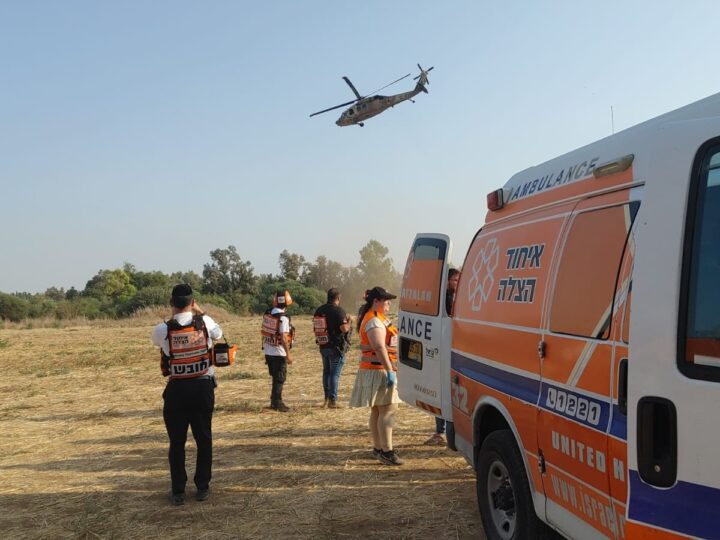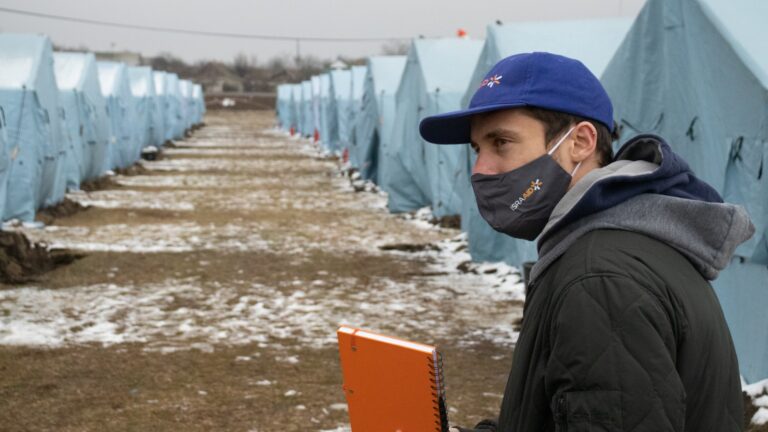Ariel Zohar is soon turning 13, but he will mark his bar mitzvah without his parents or sisters at his side.
Ariel is the sole survivor of his family, massacred by Hamas terrorists in their home on Kibbutz Nahal Oz early on October 7.
His parents, Yaniv and Yasmin, and his older sisters, Techelet and Keshet, were murdered along with his maternal grandfather, Chaim Livne.
Ariel escaped the same fate only because he chose to go out for a run that morning on his once-beautiful kibbutz in the Negev Desert, where 900 different types of plants grew in a botanical garden.
This young boy stood at their graves and recited Kaddish, the memorial prayer.
In anticipation of Ariel’s bar mitzvah, his parents had bought him a pair of tefillin, black leather boxes and straps containing parchments with handwritten faith-affirming texts from the Torah.
Tefillin are generally worn by males age 13 and up during weekday morning services, one box strapped to an arm and the other around the head,.
But somewhere in the wreckage of his home, Ariel knew, there was another set of tefillin. His father’s tefillin.
These tefillin were given to Ariel’s paternal grandfather when he was 13, a year before the Nazis murdered his parents. He survived a concentration camp and moved to Israel. He gave the tefillin to his own son, Yaniv, who was a photographer for the Associated Press and the newspaper Israel Hayom.
Tragically, Yaniv will never use them again.
Now living with his father’s sister, Ariel told visitors at the shiva for his family that he very much wanted to have those tefillin.
He dared to hope that this precious legacy had survived the Hamas ransacking of his home on the kibbutz, now a closed military zone.
Chaim Otmazgin was told about Ariel’s heartbreaking request and decided to take on this dangerous mission.
Otmazgin is a reserve commander in the Israel Defense Forces’ Home Front Command and heads a unit of volunteers for ZAKA, an Israeli organization that handles the human remains from accidents, crimes and terror attacks with the dignity and respect required by Jewish tradition.
“I was moved that this child, whose parents and sisters had been massacred a few days ago, spoke of his father’s tefillin that represents for him the continuity and tradition of this family who suffered so much.”
Otmazgin got permission from the army to enter what was left of the Zohars’ house on Kibbutz Nahal Oz. He and accompanying soldiers were given just six minutes, due to ongoing mortal danger from nearby Gaza.
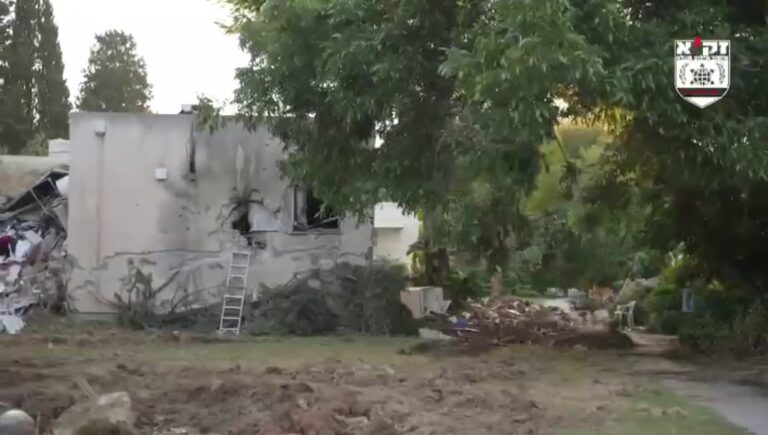
They quickly located the dark blue velvet bag containing the tefillin and prayer shawl, and also grabbed a few other personal effects on their way out.
“When I handed the tefillin to young Ariel that evening, he burst into tears of emotion that they had been found so that he could wear them for his bar mitzvah,” said Otmazgin.
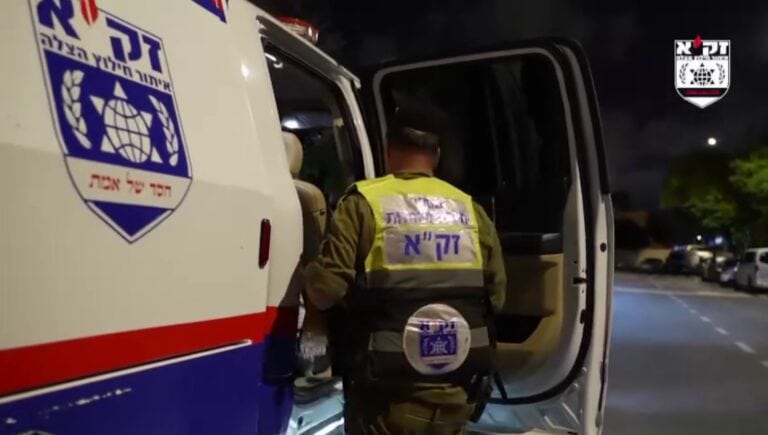
Although he saw many gruesome and tragic scenes following the Hamas attacks, Otmazgin broke down too.
“My crew and I have handled 700 or 800 [dead] bodies, but only when I returned the tefillin to Ariel did I cry,” he said.
Ariel’s 90-year-old grandfather, who had just lost his son, daughter-in-law and granddaughters, stood up and said to his grandson: “My parents were murdered when I was 14. I resisted and continued my life. Today I have a grandson living in Israel! To you too, they did this to you when you were 12 years old. You too will resist and you too will have grandchildren in Israel!”
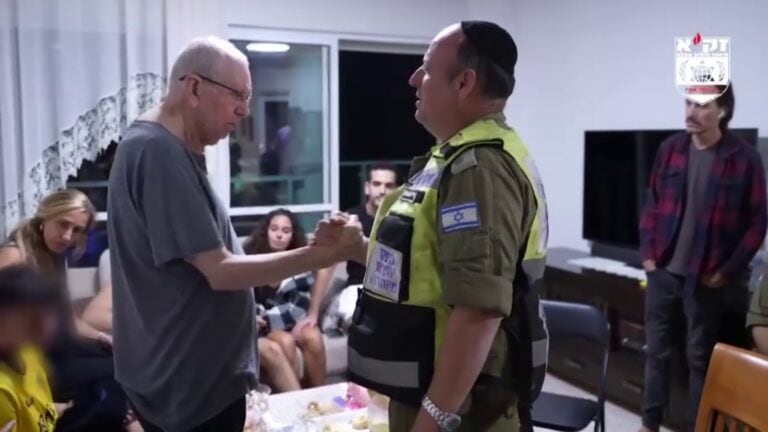
His friend’s son
Otmazgin has shared other poignant stories on his social media pages.
“On the first day of the war, towards the end of the night, I get a call from an officer begging me to come urgently to evacuate a soldier’s body that has been on the street for eight hours. The soldier’s father was standing next to the body, he said, and nobody was answering his pleas for help.”
Otmazgin was then loading murdered victims from the Supernova music festival into a convoy of ambulances.
“I avoided putting bodies in the car I was driving — I kept it for an emergency situation where maybe I would have to abandon the convoy for the sake of an urgent mission. When I received the call from the officer, something in my heart told me that it was for this I kept the car available.”
When he got to the scene, he saw that the deceased soldier’s father was his longtime friend, Israel Fire and Rescue Services Chief Dedi Simchi.
“I looked him in the eyes, refusing to believe that I should be the one who meets a friend and commander who has just lost his son. But he said to me, ‘The fact that you come to take care of my son comforts me. I always gave him the best there is, and even now he is receiving Otmazgin – the best there is.’
“I dedicate my actions to the memory and ascension of the soul of your sainted son, Guy, may God avenge his blood,” Otmazgin told Simchi.
His message to Israelis is this: “Don’t call me a hero and all the other compliments. It doesn’t do anything for me. Just tell me that you are strong and united, that there is something to win for.”














